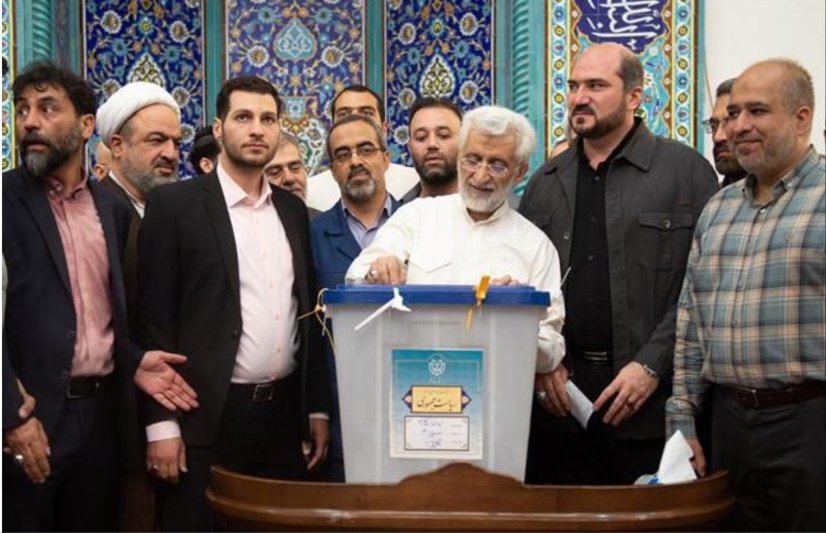Iran election: Run-off looms as leading candidates unlikely to secure majority vote

According to a preliminary tally of results announced, the presidential elections will likely be extended to a second round, Tasnim news agency reports.
The report said that Saeed Jalili and Masoud Pezeshkian, who are currently leading, will go to the run-off on July 5.
State media reported that after counting over 19 million votes, Pezeshkian had 8.3 million while Jalili held 7.2 million.
With just over 19 million votes counted, Iran’s state media has shared the following results:
Pezeshkian: 8.3 million
Jalili: 7.2 million
Ghalibaf: 2.7 million
Pourmohammadi: 158,314
Voters cast ballots on Friday to pick the successor to President Ebrahim Raisi who died in a helicopter crash earlier this year.
If no candidate is able to secure 50 per cent of the votes plus one, the election will head to a run-off between the top two candidates.
Under Iran’s electoral law, a run-off is held on the first Friday after the result is announced which means it would take place on July 5.
Iranians would have normally voted in a presidential election in June next year, which would have marked four years since Ebrahim Raisi was elected.
However, Raisi’s death in a helicopter crash on May 19, 2024, started a 50-day constitutional deadline to hold a new vote.
The presidential vote comes months after the parliamentary election in March, and a run-off in May, which were once again dominated by conservatives and hardliners amid the lowest turnouts since the 1979 Islamic Revolution.
What will a new president have to deal with?
Iran is facing hurdles in managing its affairs domestically and internationally.
The economy continues to be dogged by a high inflation rate of about 40 per cent. Authorities have promised it will be short-lived as Iran is merely experiencing hardships “on its way to the summit”.
Tehran continues to sell its crude oil to China and others despite US sanctions but largely remains disconnected from the global financial system.
The country’s nuclear programme continues to signify a clash point with the West and the International Atomic Energy Agency (IAEA).
Iran and its “axis of resistance” of aligned political and armed groups across the region have been directly pitted against Israel and its allies since the start of the war on Gaza.
For these and more credible stories, join our revamped Telegram and WhatsApp channels.
Telegram: https://t.me/peopledailydigital
WhatsApp: https://whatsapp.com/channel/0029Va698juDOQIToHyu1p













